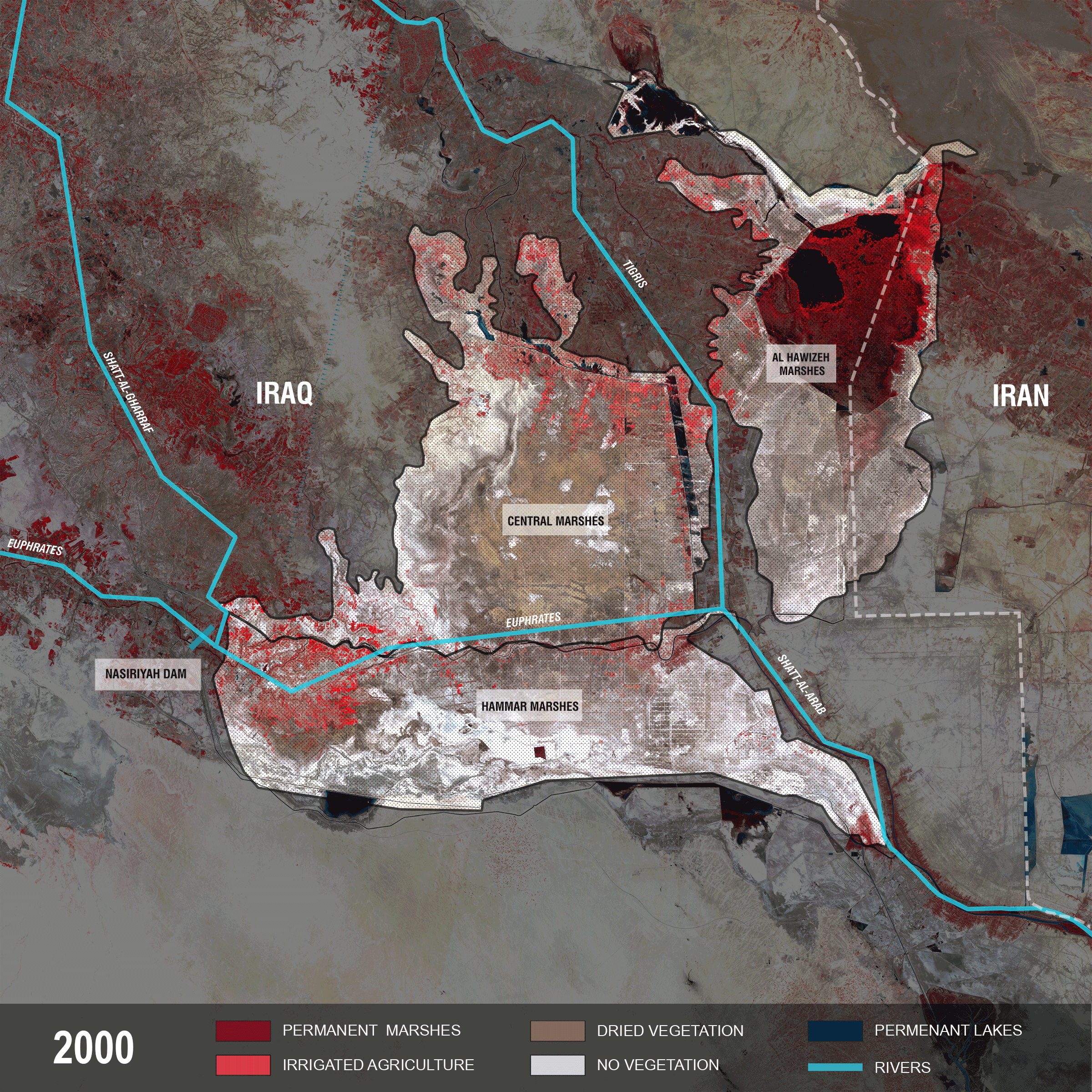Ahwar of Southern Iraq: A case for Environmental Refugees
*
Ahwar of Southern Iraq: A case for Environmental Refugees *
Maps the transformation and displacement within the Ahwar Marshes, caused by oil extraction, colonial agricultural interventions, and hydro-infrastructural operations in neighboring countries.
The detrimental consequences of this exploitation manifest in various forms, whether it be the toxic proliferation caused by bombs, bullets, tanks, or gas flares within the oil fields, the depletion of both human and non-human populations, or the subsequent waves of migration. The delicate ecosystem of wetland systems in Iraq has been rendered vulnerable to exploitation for military, political, and economic gains. This exploitation is facilitated through activities such as agricultural irrigation, oil exploration within the country, and hydro-infrastructural operations in neighboring nations.
Over the years, this detrimental process of modernization has marginalized an estimated 500,000 Ahwari people, effectively eradicating the way of life they had relied upon. Starting from the 1950s, their cultural practices and livelihoods have been systematically dismantled. In the 1990s, the international community engaged in environmental diplomacy concerning this ecosystem. It was during this period that the United Nations labeled the Marsh Arabs as "Environmental Refugees," a classification that predates the ongoing debates surrounding the legal application of this term.
Unlike the term "refugee," which gained international recognition through the 1951 UN convention, the classification of "Environmental Refugees" remains highly contested and lacks legal standing. It's important to note that internally displaced persons (IDPs) are explicitly excluded from the definition of refugees, as refugees seek international aid due to the lack of protection from their own state. However, in some cases, "Environmentally displaced people" may still seek shelter from their state. In the case of the Ahwaris, they were either internally displaced within Iraq or forced to seek refuge in camps located in Iran. Establishing a legal definition for the displacement of the Ahwaris was crucial in order to warrant international aid and support. However, the term "Environmental Refugees" was employed by the United Nations as a tool to justify international involvement in Iraq's oil-rich resources. Interestingly, the UN conventions fail to mention that beneath the Marshes lie several "supergiant" oil fields. Consequently, the Ahwar people not only lack the rights to their indigenous land and water but also lack the legal status to voice objections against the oil extraction taking place within the territories they have inhabited for thousands of years.
Crit: Laura Kurgan, Columbia University, GSAPP
In Collaboration with Aditi Mangesh Shetye
